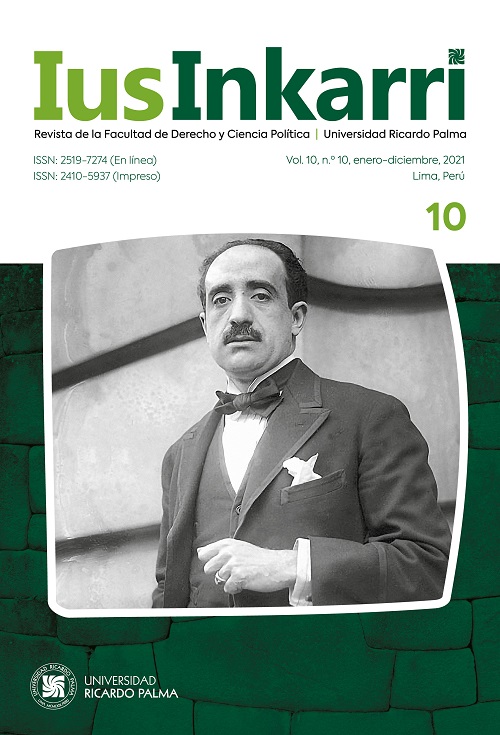The judicial review of the substance of constitutional amendments in comparative constitutional law
DOI:
https://doi.org/10.31381/iusinkarri.v10n10.4643Keywords:
power of constitutional reform, material limits, judicial review, comparative lawAbstract
This paper addresses a particular scenario of the classic tension between constitutionalism and democracy, one that poses the existence of material limits to the power of constitutional reform. The subject undoubtedly raises a series of perplexities around some aspects such as the legal nature of the constitutional reform power. The essay analizes the defense of implicit material limits when the constitutional text has not explicitly recognized them, the competence and legitimacy of the courts, the normative parameter in merit to which this control would be carried out, among others. In this context, this article proposes to provide an analysis of these issues based on comparative law, exposing the cases of Germany, the United States and Colombia, countries that have provided different answers to the issue of material limits in function of their own constitutional texts and systems, and whose arguments are relevant to constitutional theory.
Downloads
References
Ackerman, B. (2007). La Constitución viva. Themis. Revista de Derecho, (55), 29-75.
Aláez, B. y Álvarez, L. (2008). Las decisiones básicas del Tribunal Constitucional Federal Alemán en las encrucijadas del cambio de milenio. Centro de Estudios Políticos y Constitucionales.
Arnold, R. (1992). La Reforma Constitucional en Alemania. Revista de Derecho Político, (37), 373-384.
Bryce, J. (2015). Constituciones flexibles y constituciones rígidas. Centro de Estudios Políticos y Constitucionales.
Cajas, M. A. (2004). La reforma constitucional. Límites de la Corte al Congreso. Precedente. Revista Jurídica, Anuario Jurídico, 13-48.
Contiades, X. y Fotiadou, A. (2016). Models of constitutional change. En Contiades, X. (ed.), Engineering constitutional change: a comparative perspective on Europe, Canada and the USA (pp. 417-468). Routledge.
De Vega, P. (1985). La reforma constitucional y la problemática del poder constituyente. Tecnos.
Dellinger, W. (1983a). The legitimacy of constitutional change: rethinking the amendment process. Harvard Law Review, 97(2), 386-403.
Dellinger, W. (1983b). Constitutional politics: a rejoinder. Harvard Law Review, 97(2), 446-450.
Gomes, J. J. (1993). Direito Constitucional. Almedina.
Gözler, K. (2008). Judicial review of constitutional amendments. A comparative study. Ekin Press.
Hesse, K. (2012). Escritos de derecho constitucional (P. Cruz Villalón et al., trads.). Centro de Estudios Políticos y Constitucionales.
Lambert, E. (1921). El gobierno de los jueces. Tecnos.
Marbury, W. L. (1919-1920). The limitation upon the amending power. Harvard Law Review, 33(2), 223-235.
Murphy, W. F. y Tanenhaus, J. (1977). Comparative constitutional law: cases and commentaries. St. Martin’s Press.
Rodríguez, R. (2006). El control constitucional de la reforma a la Constitución. Dykinson.
Stender-Vorchaws, J. (2004). The Decision of the Bundesverfassungsgericht of March 3, 2004, concerning Acoustic Surveillance of Housing Space. German Law Journal, 5(11), 1337-1348.
Tribe, L. H. (1983). A constitution we are amending. In defense of a restrained judicial role. Harvard Law Review, 97(2), 433-445.
Whittington, K. E. (2005). Judicial review and interpretation: have the courts become sovereign when interpreting the Constitution? En Hall, K. L. et al., The judicial branch (pp. 116-141). Oxford University Press.
Downloads
Published
How to Cite
Issue
Section
License
Copyright (c) 2021 Evelyn Milagros Chilo Gutiérrez

This work is licensed under a Creative Commons Attribution 4.0 International License.













